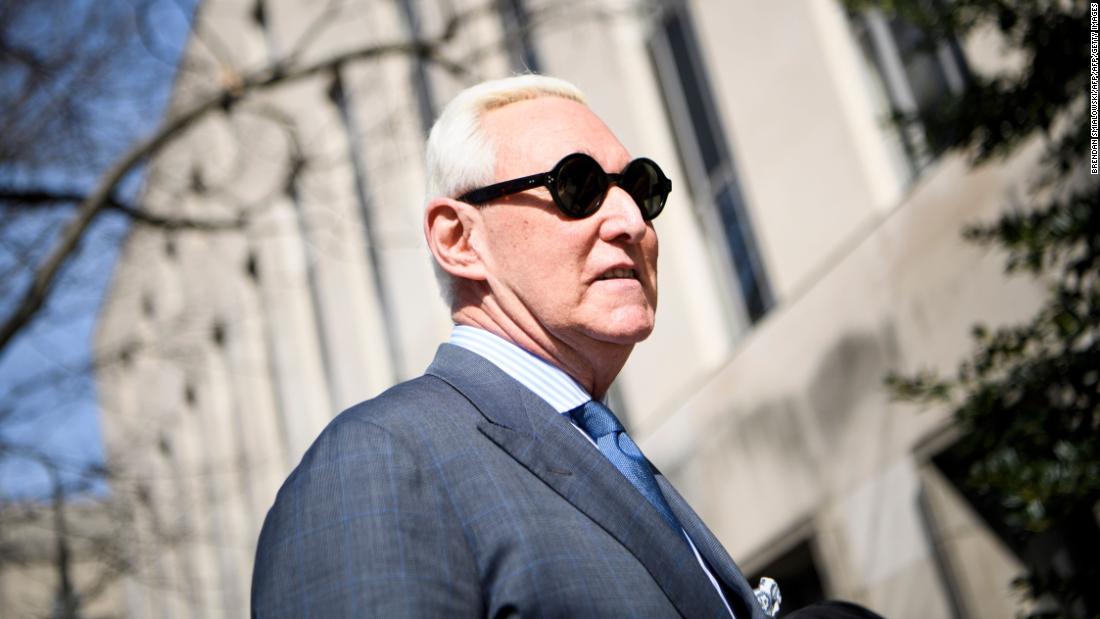
The unique scene at a federal courthouse in Washington accentuated what had already been a chaotic pretrial process as investigators trying to determine whether the longtime Donald Trump associate and political provocateur obtained information from WikiLeaks first had to interview -- and in some cases do legal battle with -- a range of eccentric witnesses. Stone has said he's done nothing wrong.
The high-profile trial could bring out new details about what former special counsel Robert Mueller found regarding the Trump campaign and Russian interference in the 2016 election. But on Tuesday, it was Stone's apparent illness that defined the first day in court.
"Mr. Stone is not feeling well," defense attorney Robert Buschel told Judge Amy Berman Jackson at the bench shortly after the potential jurors were sworn in, according to transcripts of sidebar discussions with the judge.
On two occasions, Stone was allowed to leave the courtroom to use the restroom. The judge made him aware they could postpone the proceedings, since he had a right to be in court and face his potential jurors.
"I'm not going to order him to waive his constitutional rights, but we cannot spend a whole day doing what we should be able to do in a short period of time," Jackson said, according to the transcript. "So, let him go, let him come back, and then we're going to bring in the next juror."
At one point the judge even offered anti-diarrheal medication to the defendant.
"I have Imodium in my chambers," she said.
Later in the morning's proceedings, the judge noted that Stone was looking unwell.
"Your client seems to have his eyes closed and his head in his hands. And I just want to make sure we should keep going," Jackson said.
After a short discussion with his client, Buschel asked for an early lunch break. "I mean, I'm trying to jam along with the court, and I think we're doing good," he said in requesting an early break for Stone.
"I understand. I think everybody is operating in good faith here," the judge responded. "Over the hour, you have the opportunity to consult with -- I believe there's a medical professional in his family and the nurse in this building."
Prosecutors said they wanted to ensure any decision to go forward with Stone followed the law.
"The government's position here is the defendant, obviously, has a constitutional right to be present for the proceedings," prosecutor Jonathan Kravis told the judge. "He can waive that right. But, if that's what he chooses to do, we want to make sure the waiver is knowing and voluntary."
Shortly after court reconvened following the lunch break, Stone left the courthouse for the day.
The trial could take two weeks or more, partly because of the amount of evidence. Stone was arrested last January in an unexpected predawn raid at his home in Florida, caught exclusively on camera by CNN.
Prosecutors' allegations against him told a scintillating story of how the Trump campaign coordinated with Stone to attempt to learn about stolen documents that, once public, could hurt Trump's opponent Hillary Clinton in 2016.
Stone communicated with the campaign about his and his associates' attempts to reach WikiLeaks, which was rolling out Democratic documents stolen by Russians. Prosecutors say Stone falsely denied to the House that he'd had discussions with the campaign and some others about trying to reach WikiLeaks.
No comments:
Post a Comment